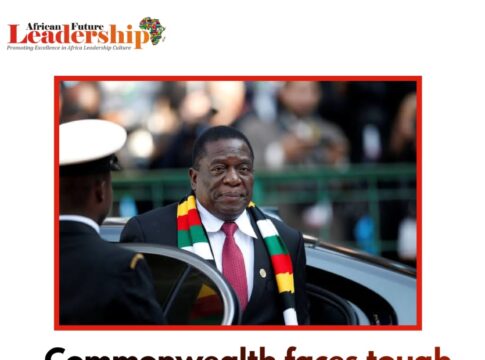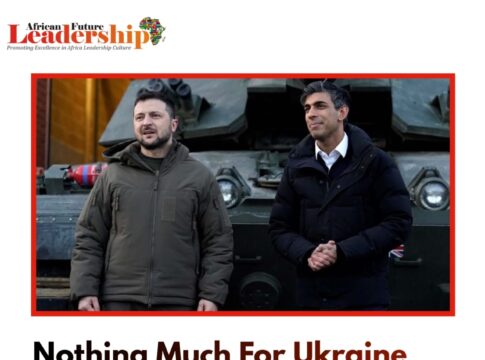After allowing several dictatorship regimes to become members in recent years, the Commonwealth and member states such as Canada are now grappling with one of their most difficult problems: whether to approve Zimbabwe’s bid to rejoin their club.
The timing would be awkward. As he prepares for an election this year, Zimbabwean President Emmerson Mnangagwa has become even more repressive than his notorious predecessor, Robert Mugabe, crushing opposition meetings and imprisoning activists. But after other autocrats were permitted to join, the Commonwealth might now find it difficult to draw the line at Zimbabwe.
A high-level delegation, sent by the Commonwealth secretariat to Zimbabwe last November to study the situation, met Mnangagwa and praised the country for its “very impressive progress” – but provided little evidence for the comment. Its findings are now being drafted in an “informal assessment report,” but the process is veiled in complete secrecy.
READ MORE: PDP New Generation Says: Atiku Is Bridge Between Old, New Generation
“Please note that the informal assessment reports are restricted to Commonwealth member governments and are not for public consumption,” said a spokesperson for the Commonwealth secretariat in London, who did not give her full name.
Canada, too, is declining to say whether Zimbabwe should be readmitted to the Commonwealth, although its diplomats have been discussing the issue informally for months.
“Canada is aware of Zimbabwe’s interest in rejoining the Commonwealth,” said James Emmanuel Wanki, a spokesperson for Global Affairs Canada, in reply to questions from The Globe and Mail.
“Commonwealth member states would only be asked about Zimbabwe’s membership after the fact-finding mission delivers its report and the Secretary-General of the Commonwealth issues a recommendation,” he said.
Among the key criteria for the readmission decision, according to Mr. Wanki, will be the “core principles and values of the Commonwealth, including democracy, rule of law, human rights and good governance.”
But critics say the Commonwealth already jettisoned these principles in recent years when it granted membership to some of the world’s longest-ruling authoritarian regimes, including those of Rwanda, Gabon and Togo. Last year’s Commonwealth heads of government summit was held in the Rwandan capital, Kigali, despite evidence that the Rwandan security agencies have imprisoned and killed dissidents at home and abroad.
Zimbabwe is seen as a crucial test case because it was one of the highest-profile governments to be targeted for action by the Commonwealth. It was suspended from the Commonwealth in 2002 after widespread controversy over its farm seizures, tainted elections and other human rights abuses. When the suspension was extended a year later, Mugabe declared that Zimbabwe would pull out of the Commonwealth. “This is unacceptable,” he said. “This is it – it’s quits, and quits it will be.”
Mugabe was toppled in a military takeover in 2017 and replaced by Mnangagwa, who promised to bring in a “new and unfolding democracy.” He announced in 2018 that his government would seek to rejoin the Commonwealth – a bid supported by allies such as South African President Cyril Ramaphosa.
“We are committed to upholding the fundamental values and principles for resubmission into the Commonwealth,” Mr. Mnangagwa said in November after meeting the Commonwealth’s assistant secretary-general, Luis Franceschi, the head of the visiting delegation.
There is strong evidence, however, that Mnangagwa has cracked down on dissent more ruthlessly than even his predecessor did. With some polls suggesting that he is less popular than the main opposition leader Nelson Chamisa, the election expected in August could be the most violent and repressive in the country’s history, analysts say.
“Since the 2017 coup, there is a deepening authoritarianism in Zimbabwe, even deeper than under the Mugabe regime, and we’re seeing a process of systematically attempting to dismantle the opposition and close down space for civil society activists,” said Brian Raftopoulos, a Zimbabwean scholar at the University of Cape Town, at a panel organized on Monday by the Institute of Commonwealth Studies at the University of London.
A recently introduced law on non-governmental organizations, for example, “will effectively give the state the ability to enter and take control of any civil society organization that it considers a threat and place massive control over their funding and resources,” Raftopoulos said.
Authoritarian rulers believe they have more leverage over the Commonwealth today because the group is under pressure to compete for influence in Africa with autocratic powers such as China and Russia, he told the panel. But throwing open its doors to dictators would carry a heavy price, he said.
“If you’re going to allow this to happen, there will be consequences for the Commonwealth. It will open up a whole new set of possibilities for authoritarian regimes to get away with this kind of politics. Simply letting Zimbabwe into the Commonwealth without dealing with these issues will only make the problem deeper.”
In British parliamentary debates, some politicians have argued that Commonwealth membership could nudge Zimbabwe in a more democratic direction. Lord Sonny Leong, in a debate in the House of Lords last month, said the Commonwealth could “change hearts and minds, and ultimately national laws” if countries such as Zimbabwe are inside the group. “If we are too intransigent, we risk driving Zimbabwe to look elsewhere for international allies,” he said.
Others strongly disagreed. Lord Jonathan Oates said the Commonwealth’s reputation would suffer “severe damage” if it readmitted a country that was “in flagrant violation” of the Commonwealth’s democratic principles.



